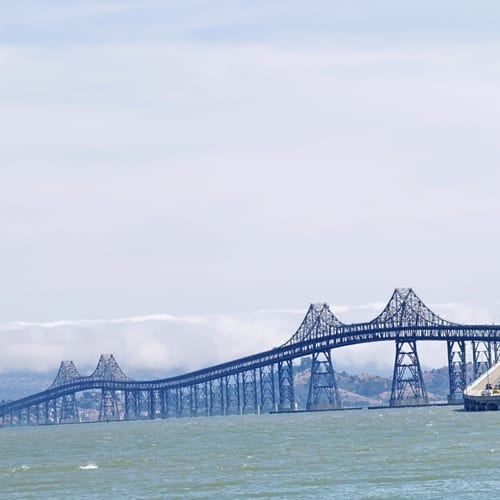On Thursday, February 14, the U.S. Coast Guard initiated a new rule that prohibits large vessels such as oil tankers and cargo ships from sailing near the Bay Bridge in San Francisco during periods of heavy fog.
According to the Marin Independent Journal, a local news source, this restriction is part of an effort to decrease the risk of oil spills in the San Francisco Bay by ensuring that large ships aren't passing out of the marina and under the Bay Bridge when visibility is less than half a mile.
The new rule is a reaction to an incident on January 7 during which the Overseas Reymar, an empty oil tanker, crashed into a Bay Bridge tower, causing $3 million in damage to the bridge. Fortunately, this particular collision didn't result in any oil spilling into the water. Five years ago however, a 901-foot cargo ship hit a tower and spilled 53,000 gallons of bunker fuel into the bay.
"We were responding to the casualty of the Overseas Reymar," Port of San Francisco Coast Guard captain Cynthia Stowe said. "We're taking a very conservative approach."
There were already fog rules in place – implemented in 2008 – reports the source, but since such weather conditions are common in San Francisco, the Bay Bridge was not included until now. Even still, the rules only affect vessels coming out of the bay, and not those entering it.
Hopefully this new restriction will prevent future collisions with the Bay Bridge. That being said, weather-related risks are just some of the dangers boat owners face. With this in mind, many individuals and organizations with interests on the water turn to marine insurance providers that can help them find the best rates and ensure that they are covered in the case of an accident. These professionals can also stress the importance of purchasing vessel pollution coverage, a relatively inexpensive insurance for something that can be expensive to deal with when a claim happens.

